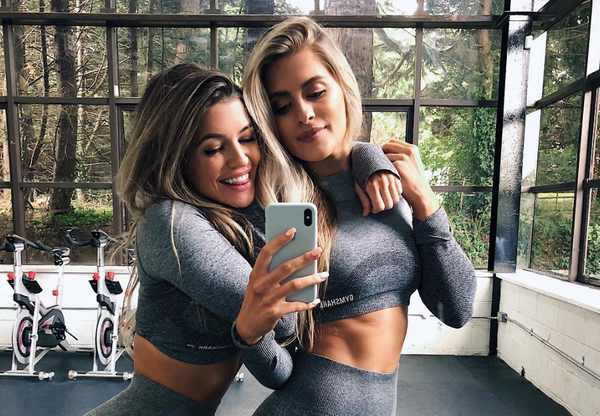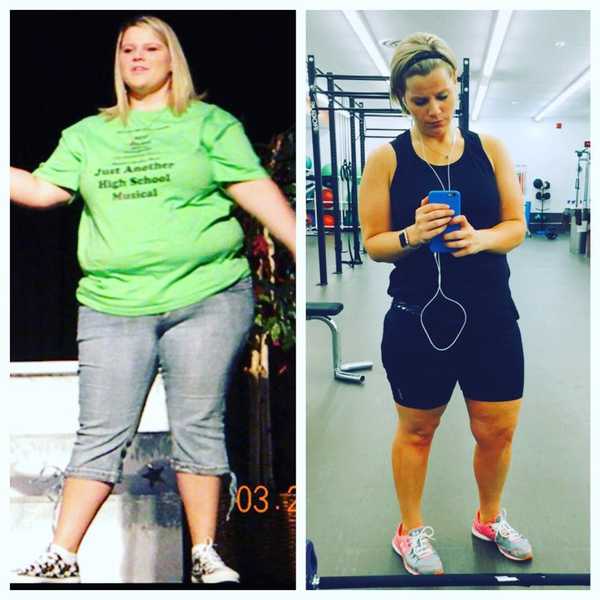“You must learn to accept yourself just as you are.”
I’ve lost count of the number of times I’ve heard, read or thought a version of this statement in my recovery from Borderline Personality Disorder (BPD) I believe it. I believe that accepting the whole of me — my strengths, my vulnerabilities, everything messy and human inside me — is key to finding peace with myself.
But here’s the problem: Borderline Personality Disorder threatens many of the central aspects of my identity. I’m strong: I’ve made it through having suicidal thoughts daily. I’ve tried to stop self harming. I’ve gone back to school. I’ve held down a job. Yet some days, I can’t face myself or understand my worth. I don’t feel worthy of love or hugs from friends. I feel unlovable and broken. I don’t feel worthy of eating the food in front of me and I dont have the effort to go and get it. I feel like other people deserve the nutrients and wholeness that food would bring. My emptiness is more complete with the emptiness of my stomach. I don’t feel worthy of the friends who encourage me to eat or set alarms on my phone to remind me. The connection between wholeness of self and wholeness of body is one that often goes unnoticed.
I have dreams: to be an art therapist, to write, to teach, to make a difference. Yet because of my illness, I’ve turned from a lot of the things that would normally make myself happy. I’m generous and caring and kind. Yet I often walk around full of shame and isolation, convinced that my illness makes me selfish and shallow and small.
Yes, I must accept the whole of me. But who am I? And what does it mean to be whole?
Sometimes I talk about my whole self like a puzzle. How can I take the pieces of me — the self before BPD and the self that’s here now — and string them together in a coherent identity? Other times, I talk about the whole of me as a journey. I need to go out and find myself, working until I arrive at the person I want to be.
There’s a reason we talk about finding a self or putting one together. This language implies that the whole of us exists “out there” somewhere, perfect and complete, if we can only find it. Wholeness becomes something of the future. When I’ve sorted myself out, then I will be whole.
Recently, with the help of people around me, I had a radical thought: What if wholeness isn’t something I need to work for or find? What if I’m whole right now, just as I am?
The thought is unnerving. Right now, there are parts of me I don’t particularly like. There are puzzle pieces I wouldn’t put in a finished product. That’s why its called recovery. But I think this reframing of “wholeness” is crucial. Acknowledging that you’re whole right now requires a new level of radical self-acceptance. It allows us to accept a version of ourselves that reflects the depth and complexity of a mature identity.
Here are three techniques that have help explore and accept this new idea of wholeness.
1. In your whole self, everything belongs.
As an art student, I see the world around me as constant metaphors for wholeness. Ecosystems have balance and beauty. But ecosystems also have waste and cost: leaves fall and die to form new soil, this winter’s rain nourishes the ground for spring. We can’t talk about the wholeness of an ecosystem without acknowledging all aspects of this cycle, the growth and the loss.
What would it mean to think of ourselves like an ecosystem? In nature, waste and death and sacrifice are necessary counterparts to growth and life. The same is true of the parts of ourselves we see as flaws or weaknesses. My pain and illness are no less a part of me than my strength and light. Accepting my whole self doesn’t mean denying or eradicating the parts of me I’d rather not include. It means facing these struggles with integrity and courage. It means realizing that my illness is intertwined with my gifts in a continuous cycle, each one informing the other in a process of growth.
2. There’s no such thing as “outside” the self. There’s only transformation and acceptance.
I often talk about battling my BPD: getting rid of an external intruder to reclaim the “true” me. Sometimes, valuable anger and motivation comes from this stance. But it isn’t always so simple. Sometimes, it’s hard to tell where BPD stops and the real me begins. It’s hard to banish the disordered thoughts — “you’re worthless,” “you’re shameful” — without first engaging and talking back.
Again, it reminds me of the world around us. Environmentalist Annie Leonard says, “There is no such thing as ‘away.’ When you throw something away, it must go somewhere.” We can talk about exorcisms, of getting rid of parts of ourselves to make way for a new whole. But in reality, there’s no place outside of the self. Nowhere to dump the bad, the toxic, the harmful. There’s only transformation and acceptance.
How can we transform our illness? It helps me to focus on the growth and gifts I’ve experienced in spite of — or often, because of — my recovery. I've learned self care, assertion of my needs, understanding of health and nutrition, perseverance, spiritual growth, resilience and what it means to hold pain and joy simultaneously. These lessons don’t make the BPD “worth it.” They don’t destroy or eradicate the disease. But they do help the illness take its place: a small place, really, enfolded in the whole of me.
3. Wholeness doesn’t imply only “good.” Your whole self has room for complexity.
Finally, a whole self has space for all the complexity of life — the good, the bad, the struggle, the joy. For years, BPD was the only way I expressed pain — about depression, family struggles, emptiness, self-doubt, and negativity. Now I’m learning: there are ways to express negative emotions that have nothing to do with an BPD. Recovery does not mean agreeing that life will always be good. It means finding healthier ways to feel heard and understood.
Recovery does mean reconnecting with the inner joy and flexibility that came before borderline personality disorder.. This self is real and worthy of being reclaimed. But sometimes, we’re sad. Sometimes, we’re angry. All the time, we’re complex. This self is equally real. This self is human.
No part of yourself is more right or wrong or true than any other. No part of yourself is less deserving or more worthless than others around yous.. Your whole self has room for every part of you. You deserve wholeness and love. You deserve to have your emptiness filled.
You are whole right now, just as you are.



















